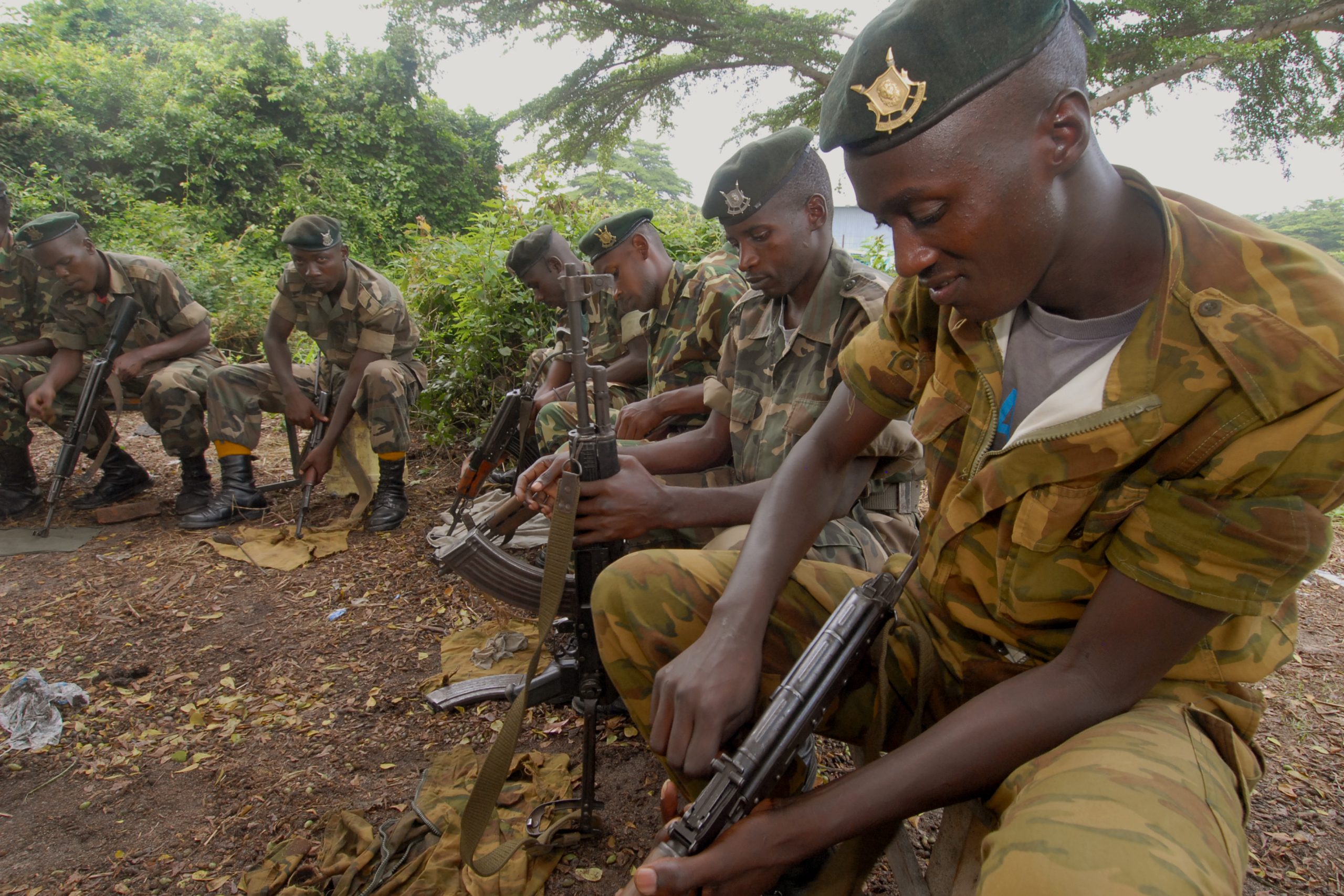On 13 March 2017, the Human Rights Council heard the oral update of the Commission of Inquiry on Burundi, established by resolution 33/44 in April 2015, as part of an Interactive Dialogue.
The announcement of April 25, 2015, by Burundian President Pierre Nkurunziza that he would seek a third, unconstitutional term at the helm of his country, led to widespread protests in the capital Bujumbura. The violent response of the government’s security forces precipitated the situation, leading to a failed coup d’etat by a section of the armed forces in May 2015. Since then, a systematic repression of civil society, political opposition, and a general climate of impunity for security forces and ruling party militias, have led to a humanitarian crisis resulting in almost 400,000 people fleeing the country.
The Commission of Inquiry regretted that the government in Bujumbura had denied access to them in three different occasions, and highlighted several recent, alarming developments. In particular, the widespread use of torture by the national intelligence services, the arbitrary arrests of many members of the National Liberation Forces (the main opposition party), and reported instances of security forces’ engagement in sexual violence, were some of the main concerns of the Commission.
Furthermore, the Commission denounced a clampdown by government authorities on Civil Society organisations and human rights defenders (HRDs). Prominent examples have included the attack on activist Pierre-Clavier Mbonimpa in August 2015, as well as the disappearances of journalist Jean Bigirimana and the treasurer of League Iteka Marie-Claudette Kwizera.
ISHR continues to pay close attention to the deterioration of human rights in Burundi, and duly made its voice heard at the Council. Clement Voule, Director of African Advocacy at ISHR, reminded the Council of the recent legislation adopted in Bujumbura. ‘In December 2016’, Mr Voule said, ‘the National Assembly adopted two bills aimed at closely controlling the action of local and international NGOs. This new legislation compels local NGOs to obtain authorisation from the Minister of the Interior for any activity and to transfer funds of foreign origin through the Central Bank’. Mr Voule especially noted the ‘flagrant refusal’ of the Burundian authorities to cooperate with the Council, and presented the member States with a forceful request ‘to refer the suspension of Burundi’s membership [from the Human Rights Council] to the General Assembly’.[1]
ISHR echoed the Commission of Inquiry as well as a number of States condemning the shrinking space for Civil Society in Burundi, and voiced their concern over the difficult situation of HRDs. These included the United States, Australia, Ireland, Portugal, the United Kingdom, Austria, Slovakia, Estonia, Lichtenstein and the Maldives, as well as the European Union as a whole. Many others encouraged the pursuit of a regional peace initiative, mentioning the on-going process orchestrated by former Tanzanian President Benjamin Mkapa and Ugandan President Yoweri Museveni. China, in particular, praised these efforts, while also inviting the Council to always respect the full territorial sovereignty of Burundi.
The scarce participation of African countries speakers was disappointing. By failing to address the Council in large numbers, an overall position of the African Group failed to come across. Out of a total of 35 addresses, only two African States made their voices heard. These were Sudan, calling for all parties to the crisis to respect their commitments under the Arusha Accords of 2000 and inviting the international community to continue providing technical support to Bujumbura, and Tanzania, which spoke of the spill-over effects of the crisis within its own borders.
At the Council, the delegates of Burundi remained firm in their unrecognition of the Commission’s mandate, and rejected the allegations of widespread abuses as mere fabrications, crafted by an international community seeking to interfere in its domestic affairs.
Finally, with the exception of those States that, for narrow political reasons, rejected a priori the Commission’s findings (read Syria and Venezuela), support for the continuation of the UN’s work in Burundi appeared overwhelming, if somewhat unenthusiastic. Should Burundi continue to refuse engagement with the UN, the threat of suspension from the Council can be an effective measure to reaffirm the credibility of the mechanism while also issuing, in the name of the international community, an unmistakeable condemnation of a repressive government. As Mr Voule said to the Council, “the credibility and the integrity of this body depend on the capacity of its members to take meaningful action when one of them so flagrantly flouts its obligations”.




